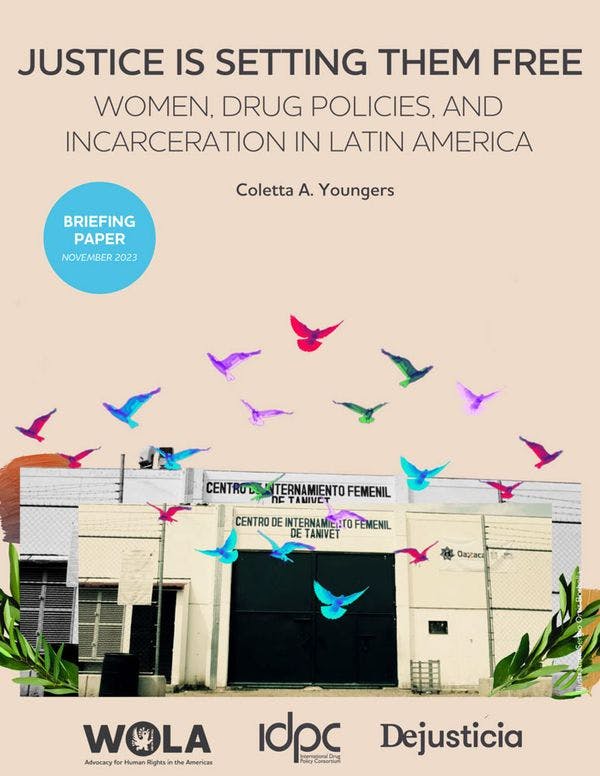La justice c'est leur libération : Femmes, politiques des drogues et incarcération en Amérique latine
Le Groupe de travail sur les femmes, la politique des drogues et l'incarcération fait le point sur près de dix ans de recherche collective et de plaidoyer commun, sur les réalisations et les déceptions, ainsi que sur les défis et les opportunités pour l'avenir. Pour en savoir plus, en anglais, veuillez lire les informations ci-dessous.
“Justice condemns women with a double penalty for being a woman… especially as a low-income woman, you’re invisible in the system until you commit a crime. Then, they finally see you.” —Nora Laura Calandra, co-founder of La Rama de Libertadxs y Familiares.
The incarceration of women is growing at alarming rates worldwide and in Latin America it is driven by strict drug laws, with devastating consequences for the women impacted and their families. Their stories unveil contexts of poverty, lack of opportunity, and physical and sexual violence, and also reveal the discrimination of unjust legal systems and societies plagued by stigmatization and patriarchal attitudes. But they are also stories of resilience, as women coming out of prison in Latin America today are organizing and fighting for their human rights and the right to live with dignity.
In response to the growing crisis of women’s incarceration in Latin America, in 2015 organizations, experts and activists created a Working Group on Women, Drug Policies, and Incarceration, led by the Washington Office on Latin America (WOLA), the International Drug Policy Consortium (IDPC), and the Colombian NGO, Centro de Estudios de Derechos, Justicia y Sociedad – Dejusticia. Our objective is to significantly reduce the number of women deprived of liberty in Latin America, providing analysis and public policy recommendations and participating in advocacy initiatives at the international, regional, and national levels.
The purpose of this report is to reflect on almost ten years of collective research and joint advocacy by the working group, its achievements and disappointments, as well as challenges and opportunities for the future.
